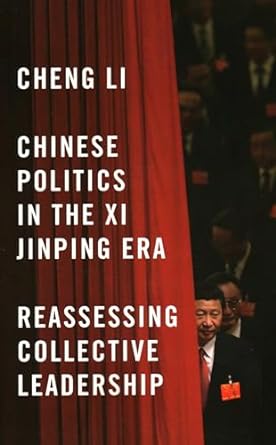
Cheng Li (his proper Mandarin enunciation is Li Cheng), is a leading Sinologist with a twist. He has been based in Brookings Institution, Washington DC over the last two decades. His niche is leadership dynamics in China, with a focus on how they execute their decisions at the very top, indeed, how they each reach the pinnacle of their power.
Cheng Li had studied Jiang Zemin, Hu Jin Tao, and now, Xi Jin Ping. He is not only an expert at understanding the interregnum that follows each leadership transition, but the continuity and the disruption too; thus, giving his analysis a more realistic projection and pattern. Beyond that, Cheng Li is able to provide a comprehensive analysis of the vicissitudes of China’s party system and predicts what is likely to happen as President Xi amasses personal power and tests the constraints of collective leadership.
Xi is one of the most intriguing and complex world leaders of our time, and China’s political trajectory is crucial to the peace and prosperity of the world. First, Cheng Li is about to out. Second, President Putin and President Xi now know that they can strategically pair up to lavish more flattery on the easily impressible Donald Trump, transforming the dynamics of world politics at the highest levels. But will President Xi maintain his chokehold on China?
Since becoming general secretary of the Chinese Communist Party in 2012, President Xi has surprised many in China and around the world with his bold anti-corruption campaign and his aggressive consolidation of power. President Xi’s legacy, as Li argues, will largely depend on whether he encourages or obstructs the trend of political institutionalization in governing the world’s most populous country as it becomes increasingly pluralistic.
Cheng Li provides a nuanced account of how the structure and dynamics of party leadership have evolved since the late 1990s, challenging Western conventional wisdom about the Middle Kingdom. His insights into what many China analysts call the “black box” of leadership decision making draw on the meticulous biographical information he includes in this volume on the members of the party’s Central Committee, with tables and charts detailing their family origins, education backgrounds, occupations, career patterns, and mentor-patron ties.
